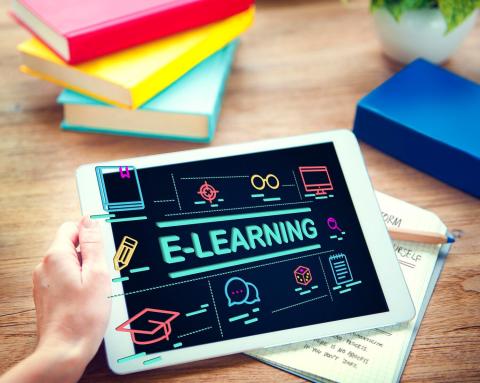It was the first day of school, and teacher Isabel's classroom was set up with advanced technological tools she had never used before. Among them was a learning platform powered by artificial intelligence (AI). As the day progressed, Isabel discovered how this system automatically personalized lessons for her students: Tomás received exercises to reinforce his reading comprehension, while Ana explored advanced mathematical problems that challenged her restless mind. Isabel, although initially skeptical, couldn't help but be impressed as she saw how AI optimized her work and enhanced her students' learning.
This story, increasingly common in modern classrooms, reflects how artificial intelligence is transforming education, allowing teachers and students to access educational resources tailored to their needs. In this article we will explore how AI is revolutionizing the educational sector, its benefits, and how your institution can take advantage of these innovations to improve its processes.

Artificial intelligence as an educational ally
Traditional education has faced persistent challenges: overcrowded classes, diverse learning styles, and the difficulty of offering personalized attention. This is where artificial intelligence comes in. According to a report by HolonIQ, the global educational technology (EdTech) market will reach $404 billion by 2025, and AI is a key driver behind this growth.
With AI, educational systems can analyze massive data to personalize teaching and optimize outcomes. Imagine platforms that identify students who need help in real time or systems that design tailored curricula. These tools not only support educators, but also transform the learning experience, making it more efficient and engaging.
Practical applications of artificial intelligence in education
The applications of AI in the education sector are varied and increasingly sophisticated:
- Intelligent Tutor Systems (ITS): These systems act as virtual assistants for students, providing personalized and adaptive feedback. For example, platforms like Carnegie Learning use algorithms to teach math in an interactive and personalized way.
- Learning Analytics: AI analyzes data on student performance to identify patterns and predict problems before they occur. This allows teachers to make informed decisions to support their students effectively. According to a study by Educause Review, 71% of educational institutions are already exploring or using learning analytics.
- Automating administrative tasks: Educators often spend hours grading tests and organizing materials. AI can automate these processes, freeing up time for teachers to focus on teaching. Google Classroom, for example, uses AI to organize assignments and manage assessments efficiently.
- Inclusive learning: AI-based tools, such as Microsoft Translator or text-to-speech apps, allow students with special needs to access educational materials in an inclusive way. This fosters an environment where everyone can learn at their own pace.

Key Benefits of AI in Education
Implementing AI in education brings with it a number of benefits that not only optimize teaching but also enhance the learning experience:
- Personalization: AI adapts content to the specific needs of each student, increasing their interest and improving their understanding.
- Scalability: It allows quality education to be offered to a greater number of students without sacrificing personalization.
- Global Access: Students around the world can access advanced educational resources, closing gaps in education.
- Future-Readiness: Students become familiar with technologies that will be essential in their professional careers.
Ethical Considerations and Challenges
While AI offers great benefits, it also raises ethical questions. What about the privacy of student data? How do we ensure that these technologies do not perpetuate bias? Addressing these issues is essential for responsible implementation.
Privacy legislation, such as the GDPR in Europe or FERPA in the US, regulates the use of data in education. Ensuring that technology tools comply with these regulations is key to protecting users and gaining their trust.

How do you implement AI in your educational institution?
Implementing artificial intelligence is not an automatic process; it requires planning and a proper strategy. This is where we come in. Our software development agency offers customized solutions for educational institutions that want to integrate AI effectively and ethically. From learning platforms to predictive analytics, we work with you to design tools that fit your specific needs.
Artificial intelligence is no longer the future of education; it is the present. From personalizing teaching to automating administrative tasks, AI has the power to transform how we teach and learn. If you want your institution to be part of this educational revolution, contact us. Together we can design solutions that empower your teachers, inspire your students, and define a new standard in education.
We recommend you on video

